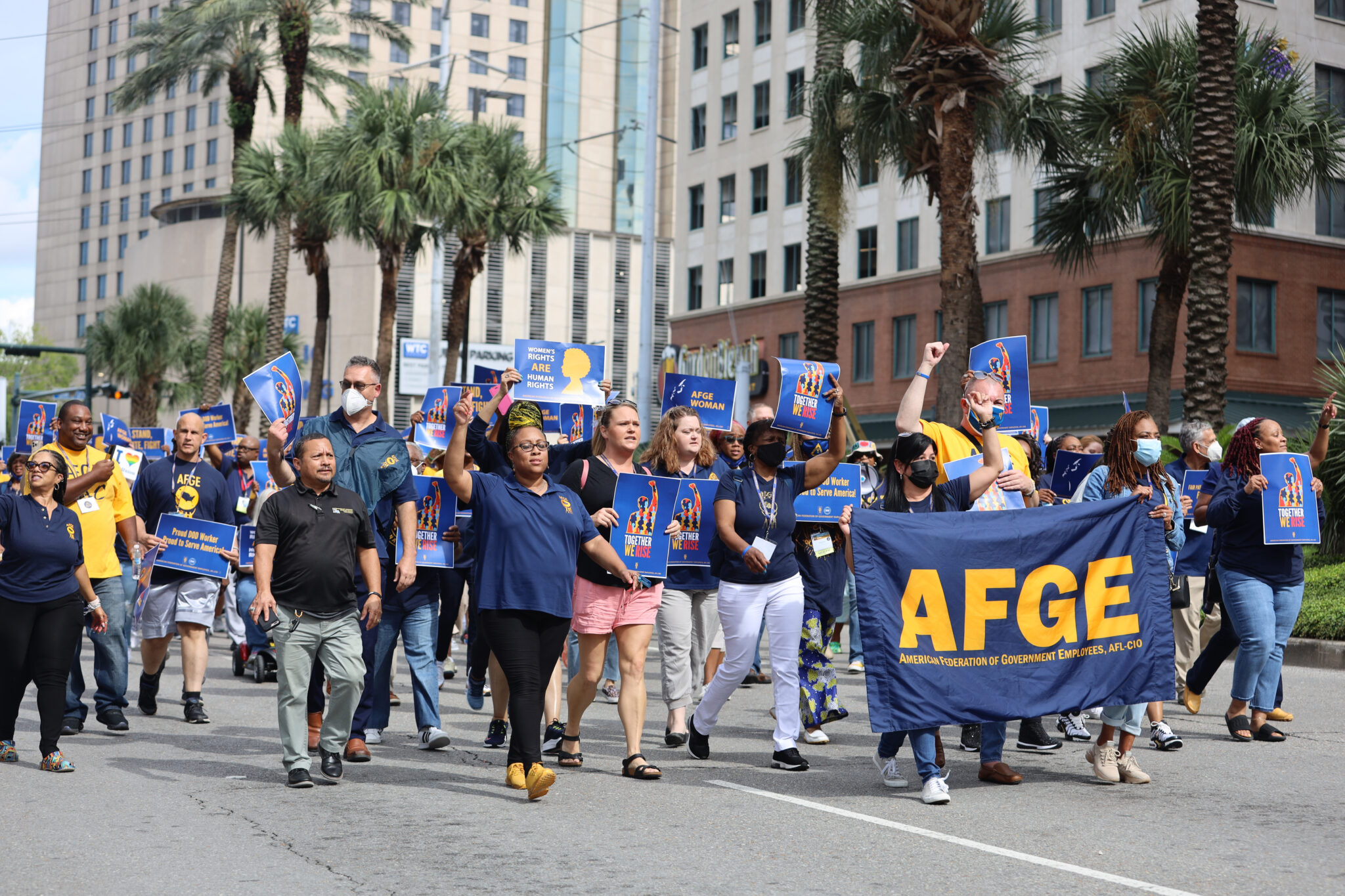
Gurtaran Johal is a student at Harvard Law School.
In today’s news and commentary, Denver Labor helps workers recover over $2.3 million in unpaid wages; the Eighth Circuit denies a request for an en ban hearing on Minnesota’s ban on captive audience meetings; and many top labor unions break from AFGE’s support for a Republican-backed government funding bill.
Denver Labor, a division of the Auditor’s Office in the City of Denver that promotes lawful employment and wage compliance, recovered over $2.3 million in unpaid wages for workers. In Denver, wage theft is a significant issue, and Denver Labor helped over 7,200 workers recover money owed for unpaid wages. The recovery included reclaiming over $23,000 for 21 workers at a barbershop who had their tip credit illegally claimed; over $16,000 for 66 workers at a yoga studio who suffered sick leave pay violations; and over $70,000 for 44 workers at a steakhouse restaurant who were paid below minimum wage. Denver Labor’s investigations were vital towards cementing recovery and supporting the workforce. Workplace Justice Lab at Rutgers University also conducted a research study where they found that in Denver, tens of thousands of workers in the metropolitan area are paid below minimum wage each year. Denver Labor is continuing to work with the city to ensure that its community members receive the pay that they deserve.
Meanwhile, the U.S. Court of Appeals for the Eighth Circuit denied a request for an en banc hearing on Minnesota’s ban on captive audience meetings by challengers, led by the Minnesota Chapter of Associated Builders and Contractors. Minnesota’s ban on captive audience meetings prevents employers from retaliating against workers who choose not to attend meetings hosted by employers with anti-union speech and sentiments. In September 2025, the Minnesota Attorney General’s Office won the dismissal of the lawsuit. The Eighth Circuit held that no enforcement actions were taken by state officials, which meant that the court was being asked to decide a hypothetical case. This case is only one among many pending against other states’ captive audience laws, such as Illinois and California. These laws have largely been passed in Democratic-majority state legislatures and urged by unions to protect the employee’s ability to exercise his labor rights.
Lastly, the American Federation of Government Employees (AFGE) expressed its support for a Republican-backed government funding bill. AFGE’s president, Everett Kelley, met with Democratic leadership to garner enough votes to end the government shutdown. By contrast, many top labor unions broke with AFGE and continue to support Democrat-backed strategies. These labor unions want to protect healthcare access and fund the government’s essential services. For example, Jaime Contreras, an executive vice president for Service Employees International Union Local 32BJ, states that it is a false choice to argue that workers must give up affordable healthcare in order for them to return to work. Rather, the government should focus on prioritizing both issues, and the labor movement should stand firm and united in its stance.






Daily News & Commentary
Start your day with our roundup of the latest labor developments. See all
January 30
Multiple unions endorse a national general strike, and tech companies spend millions on ad campaigns for data centers.
January 29
Texas pauses H-1B hiring; NLRB General Counsel announces new procedures and priorities; Fourth Circuit rejects a teacher's challenge to pronoun policies.
January 28
Over 15,000 New York City nurses continue to strike with support from Mayor Mamdani; a judge grants a preliminary injunction that prevents DHS from ending family reunification parole programs for thousands of family members of U.S. citizens and green-card holders; and decisions in SDNY address whether employees may receive accommodations for telework due to potential exposure to COVID-19 when essential functions cannot be completed at home.
January 27
NYC's new delivery-app tipping law takes effect; 31,000 Kaiser Permanente nurses and healthcare workers go on strike; the NJ Appellate Division revives Atlantic City casino workers’ lawsuit challenging the state’s casino smoking exemption.
January 26
Unions mourn Alex Pretti, EEOC concentrates power, courts decide reach of EFAA.
January 25
Uber and Lyft face class actions against “women preference” matching, Virginia home healthcare workers push for a collective bargaining bill, and the NLRB launches a new intake protocol.